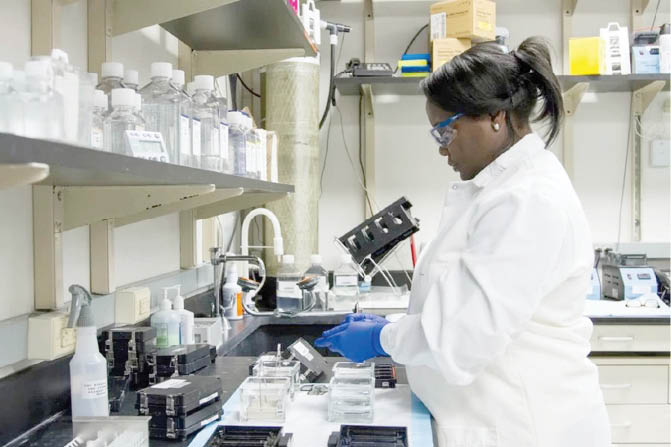Despite COVID-19 hiccups, cassava early generation seed company sees growth
IITA GoSeed, an early generation seed company, has said it made significant progress in 2021 as sales of improved cassava planting materials averaged $267,277 despite COVID-19 restrictions. It made the revelation recently during the annual meeting of the Building an Economically Sustainable Integrated Cassava Seed System, Phase 2 (BASICS-II). Police dispel rumours of planned Fulani […]

Clofazimine, a therapy used to treat leprosy, exhibits antiviral effects against the SARS-CoV-2 virus and prevents the inflammatory response seen in more severe forms of COVID-19 PHOTO: Internet
IITA GoSeed, an early generation seed company, has said it made significant progress in 2021 as sales of improved cassava planting materials averaged $267,277 despite COVID-19 restrictions.
It made the revelation recently during the annual meeting of the Building an Economically Sustainable Integrated Cassava Seed System, Phase 2 (BASICS-II).
- Police dispel rumours of planned Fulani invasion of Lagos community
- 2006 census a charade, says NPC Commissioner
“Sales were driven primarily by orders from farmers and processors who aim to get higher yields to meet consumers’ demand,” Dr Mercy Diebiru-Ojo, the Vegetative Seed Specialist of IITA GoSeed, said.
“The sales were achieved despite COVID-19 restrictions that hurt seed supply chains,” she added.
A private seed company of the International Institute of Tropical Agriculture (IITA), IITA GoSeed was established as part of the BASICS project to help meet the demand for early generation planting materials with cassava as the first target crop.
Dr. Diebiru-Ojo sees a positive outlook in 2022 as she remarked: “We are optimistic that sales and expansion will get better in coming years.”
Through its business model, the company established 142ha of early generation seeds comprising 122ha of breeder seeds and 20ha of foundation seeds across eight states in the country.
“We worked with outgrowers to achieve this target while ensuring that women were active participants,” she stated.
Although Nigeria is the world’s largest producer of cassava, yield per ha of cassava is low (less than 8 tons per ha) compared to other countries like Thailand, with yield per ha of more than 20 tons.
Researchers blame the low yield gap partly on the use of local varieties that occupy 40 per cent of the cassava growing areas in Nigeria.
The BASICS-II project was established to address the bottlenecks in the cassava seed system with a view to granting farmers easy access to affordable planting materials in an economically sustainable approach.
This led to the creation of GoSeed in IITA and Umudike Seed at the National Root Crops Research Institute, Umudike—all in Nigeria.
IITA GoSeed is closely linked with breeding programmes in IITA.
In collaboration with the National Agricultural Seed Council (NASC), the company ensures that materials going to CSEs are disease-free and of high genetic potential.
Some of the improved varieties that GoSeed is pushing include TME419, Dixon, Ayaya, Farmers Pride, Fine Face, Game changer, Poundable and Obasanjo-2.
